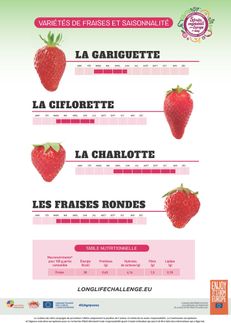foodwatch warns dm, Barnhouse and Voelkel about misleading immune advertising
Advertisement
The consumer organization foodwatch has issued warnings to several food companies for misleading health advertising. The companies concerned are the drugstore chain dm for the "Immune Smoothie for Children", the company Barnhouse for the muesli "Krunchy Immune Plus" and the drinks manufacturer Voelkel for the fruit juice "BioC Immunkraft". The companies gave the impression that their products were beneficial to health and strengthened the immune system. However, this violates the European Health Claims Regulation, which is intended to protect consumers from deceptive health claims, explained foodwatch. The consumer organization also criticized that the products are expensive and contain too much sugar. foodwatch called on the companies to stop the misleading "immune advertising".
"The companies are giving sugar bombs a healthy veneer with the euphonious word 'immune' and even charging a premium for it. In doing so, they are deceiving consumers who want to protect themselves against colds during the cold season and taking money out of their pockets," criticized Rauna Bindewald from foodwatch. "The brazen immune advertising by dm, Barnhouse and Voelkel is simply unlawful."
Following supermarket research, foodwatch criticized several cases of misleading "immune advertising" last week, including products from Barnhouse, dm and Voelkel. These are the products in question:
- Krunchy Immune Plus: Barnhouse's organic fruit muesli advertises itself as "Immune Plus" and "rich in vitamin C". The product contains just 1.6 percent dried blackcurrant and small amounts of berry powder. But at the same time, the muesli contains 18 percent sugar, which corresponds to more than 19 sugar cubes per 325 gram package. If the Nutri-Score food traffic light were mandatory, the manufacturer would have to print a yellow C on the packaging. The price of the immune muesli is also high compared to many other fruit mueslis: it costs 4.29 euros, which is around three times as much as an organic fruit muesli from dm.
- Mivolis immune smoothie for children: dm's own brand Mivolis markets a fruit squeeze as an "immune smoothie for children" and places the product alongside nutritional supplements. The main ingredient is fruit puree, enriched with added vitamins. Despite the label "no added sugar", the product contains around ten percent sugar - fructose, which has been proven to be just as unhealthy as household sugar. The squeeze would receive a Nutri-Score D, the second worst rating. The Mivolis smoothie (90 grams) also costs 1.25 euros and is therefore almost twice as expensive as the dm Bio Quetschie apple, banana, strawberry with oats (0.75 euros for 100 grams).
- BioC Immunkraft: Voelkel markets its multi-fruit juice as a boost for the immune system. Although the juice contains beneficial ingredients such as vitamins, it also contains 7.8 percent sugar. A 250-milliliter glass therefore contains around 20 grams of sugar. To put this into perspective, the WHO recommends that an adult woman should ideally consume a maximum of 25 grams of sugar per day. Due to its sugar content, Voelkel's juice only receives a Nutri-Score C. The bottle of Immunkraft from Voelkel costs 3.99 euros and is therefore more than one euro more expensive than a comparable organic multi-fruit juice from dm.
Violation of the Health Claims Regulation
Only recently, the Koblenz Higher Regional Court banned the juice manufacturer Eckes Granini from advertising its soft drink as "immune water". The manufacturer gave the impression that the advertised drink as a whole had a positive effect on the immune system. The court ruled that this is a specific health claim that is not permitted by the European Union and is therefore prohibited. Foodwatch takes a similar view of the products from dm, Barnouse and Voelkel that have now been warned.
The EU's Health Claims Regulation is intended to protect consumers from misleading health claims. Food manufacturers may only advertise with claims that have successfully undergone an approval process involving the European Food Safety Authority (EFSA) and are included in an EU-wide list. For example, the statement that vitamins C and D each contribute to the normal functioning of the immune system is permitted. However, this does not allow manufacturers to call their products immune smoothies or immune water as a whole, according to foodwatch.
Note: This article has been translated using a computer system without human intervention. LUMITOS offers these automatic translations to present a wider range of current news. Since this article has been translated with automatic translation, it is possible that it contains errors in vocabulary, syntax or grammar. The original article in German can be found here.
































































